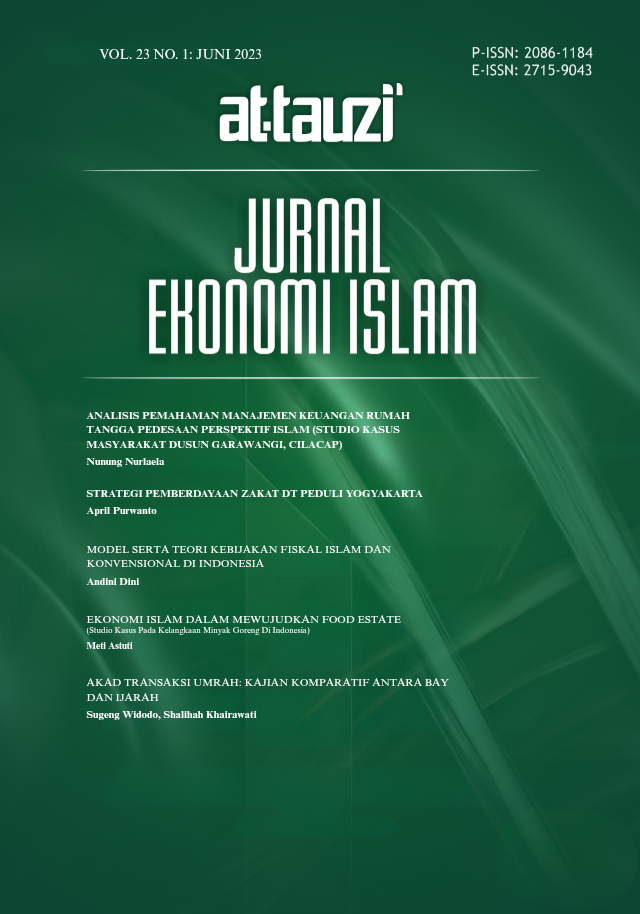MODEL SERTA TEORI KEBIJAKAN FISKAL ISLAM DAN KONVENSIONAL DI INDONESIA
Isi Artikel Utama
Abstrak
Fiscal policy regulates state income and expenditure for the continuation of economic stability. Fiscal policy is divided into two, namely conventional fiscal policy and Islamic fiscal policy. Conventional fiscal policy is the regulation of the state budget which is the obligation of the state to regulate the economy and ensure that the people get welfare. Islamic fiscal policy regulates or manages public funds with the aim of maintaining economic stability and building a fair income distribution system. The research method used is the literature study method by examining some of the literature related to the topic of discussion. The results of this study indicate that conventional fiscal policy and Islamic fiscal policy have the same goal, namely maintaining the country's economic stability. However, in Islamic fiscal policy the aim is not only that, but to distribute the wealth owned by the community so that it is spread evenly. Meanwhile, in Islamic fiscal policy there is a ziswaf instrument in which this instrument plays an important role in the fair distribution of wealth because it is distributed to groups of people who need it. Therefore, researchers want to examine more deeply the theories and models of conventional and Islamic fiscal policy.
Rincian Artikel
Hak cipta artikel ada di jurnal at-tauzi setelah dipublikasikan. Peraturan ini memberi manfaat bagi pembaca / pengguna untuk menggunakan kembali artikel tersebut. Siapapun diijinkan menyalin, mendistribusikan, dan membuat karya turunan, asalkan Anda memberi kredit kepada penulis dan lisensi ini. Lisensi Internasional Atribusi-Nonkomersial 4.0 Creative Commons.

